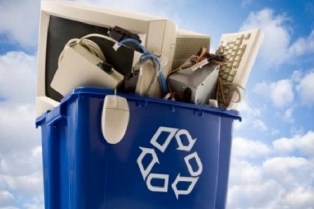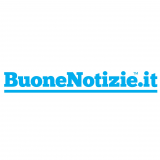
 BuoneNotizie.it
BuoneNotizie.it
Italian good news: Italy at Europe's top, recycled 2 million tons of electronic waste
- WTI Magazine #26 Apr 18, 2014
-

 BuoneNotizie.it
BuoneNotizie.it
WTI Magazine #26 2014 Apr, 18
Author : buonenotizie.it Translation by:
A few days ago Europe has reached and passed the record of 2 million tons of RAEE (Rifiuti di Apparecchiature Elettriche ed Elettroniche, as to say Waste Electrical and Electronic Equipment) collected and recycled. Thanks to the extraction of controlled chemical substances in RAEE and thanks to the recovery of recyclable and precious raw materials, the old continent has avoided the emission of nearly 22 million tons of CO2 and 3,000 tons of gases harmful for the ozone, saved energy for 9 million kWH and recovered 16 tons of gold, 130 silver and 60 copper.
These are the results recorded by ERP (European Recycling Platform), a collective European system that manages RAEE - also known as "e-waste" or WEEE (Waste of Electric and Electronic Equipment). The extraction of raw and recyclable materials from electronic devices and obsolete or no longer functional computer, has a positive impact both on the environment and on the public health.
The environmental benefits are substantial: having recycled since 2002 more than 2 million tons of RAEE is equivalent to removing 8 million cars a year by the European roads and to saving every single year the required energy needed by the whole Luxembourg or by half a million buildings. Moreover, the recovery of precious metal such as gold, silver and copper, and their re-use in the production of new equipment, prevents the extraction of raw materials from the mines. If we consider that an open pit gold mine uses up to 900,000 liters of water per day and that to extract just 30 grams of gold (one ounce) you have to grind a ton of rock, the environmental balance is definitely positive.
But that's not all: the benefits also extend to public health, since RAEE contain hazardous substances that, when the units are buried in traditional landfills, penetrate the soil and groundwater, with the risk to enter into the food chain.
Recycling RAEE, however, these harmful substances do not reach the ground, recyclable materials are started on a new life and all the precious metals are recovered, with great savings in energy, resources and money. About health, it is worth noting that the RAEE include many medical devices such as electro-medical equipment for physiotherapy, ultrasound, CT scans, etc ... and that the waste produced by hospitals and health activities are among the most dangerous and toxic (eg. pharmaceuticals and the old dental amalgam, which contains even mercury).
In a positive framework for the collection and recycling of RAEE that we have just analyzed, Italy is not far behind. The data disclosed a few days ago from ReMedia - Italian collective system for the environmentally sound management of all types of RAEE, RPA (Rifiuti da Pile e Accumulatori , as to say Waste Batteries and Accumulators) and photovoltaic systems at the end of their cycle – say that, in 2013 alone, the Italians have collected and sent for recycling 42,000 tons of RAEE, recording a positive trend of +2.9% over the previous year. The examples of virtuous municipalities in the collection and recycling of RAEE, then, are many throughout the country without exception, from north to south, from Parma to Salerno.
The RAEE that Italians tend to replace more easily are televisions and monitors, followed by consumption of computer equipment and small appliances; devices for cooling and air-conditioned, and finally by the "big whites" (washing machines, refrigerators, dishwashers). besides, the most virtuous Italian regions are Lombardy, Emilia Romagna and Veneto, while the cities up on the podium are Milan, Rome and Naples.
"The new European regulation aims to significantly increase the volumes of collected and recycled RAEE and to facilitate their transfer from the citizens" said Alberto Canni Ferrari, Italian manager of ERP. "An example of this is the provision that extends to outlets that exceed 400 square meters the obligation to withdraw for free small RAEE delivered by the citizens, which already exists for batteries and accumulators exhausted, without any obligation for the customer to purchase new equipment".
"The increase in the volume of waste collection technology is one of the major environmental challenges that Italy will be facing in the coming years" said Danilo Bonato, Managing Director of ReMedia. "Once implemented the new European Directive on RAEE, we will be able to collect and dispose the 85% of generated RAEE by 2019. We should not forget that the technological waste have an economic and an environmental value: directing them towards a proper recycling means collecting commodities, precious metals and rare earths to be reintroduced into the production cycle, saving energy and avoiding CO2 emissions".